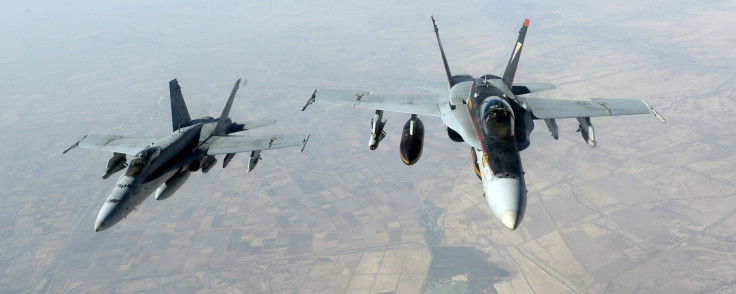US Airstrikes In Iraq Killed 'Several' ISIS Leaders Since November: Pentagon

U.S.-led coalition airstrikes have killed “multiple” prominent Islamic State group leaders in Iraq, the Department of Defense said Thursday. The leaders were killed in the last month.
“We believe that the loss of these key leaders degrades ISIL's ability to command and control current operations against Iraqi Security Forces (ISF), including Kurdish and other local forces in Iraq,” a Pentagon spokesman, Rear Adm. John Kirby, said in a statement. “Leadership, command and control nodes, facilities, and equipment are always part of our targeting calculus.”
U.S. airstrikes killed three senior leaders, according to a CBS News report. Among the claimed dead are top military commander Abd al-Basit, an aide to ISIS "caliph" Abu Bakr al-Baghdadi, Haji Mutazz, and Iraq “governor” Radwin Talib, CBS News confirmed.
In his statement, Kirby did not confirm the names or positions of the leaders who were killed, nor did he confirm the exact number.
Mutazz and Talib were former prisoners of a U.S.-run prison in Iraq, Camp Bucca, the DOD confirmed to CBS News. Baghdadi was detained in the same prison.
The U.S. and coalition countries launched an air campaign targeting ISIS positions in Iraq in August, when the militant group threatened what President Barack Obama called a “potential genocide” of Iraq’s Yazidi minority on Mount Sinjar. The U.S. expanded the air campaign to Syria in September.
The DOD’s announcement came after an exclusive Reuters report that coalition airstrikes on ISIS positions in Syria had decreased. Of the 64 airstrikes on Syria this month, only two were launched by a coalition partner, according to Reuters. U.S. officials said the decrease in coalition airstrikes was indicative of a decrease in the number of ISIS positions.
"There are simply less [fixed] targets," U.S. official, speaking on condition of anonymity, told Reuters. "From our point of view, that's a good thing. It means that the strikes are having an impact."
© Copyright IBTimes 2024. All rights reserved.












